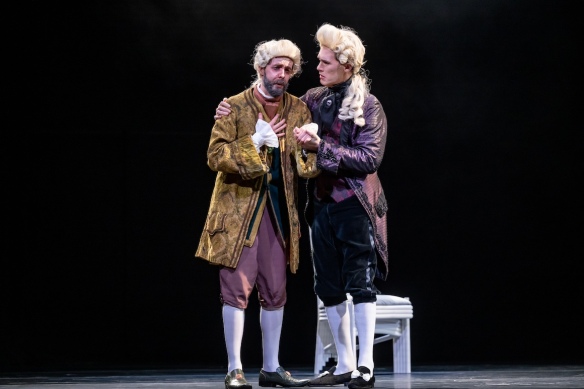Mezzo-soprano Ema Nikolovska made her Koerner Hall recital debut on Sunday afternoon just twenty-six years after first enrolling at the Royal Conservatory of Music. It was clearly an emotional occasion for her and justified the barely choked back tears in her introduction. The emotion though did not negatively affect her singing which was notable for, among other things, great control; emotionally and technically.








 There was never a chance that Emily D’Angelo’s solo recital at Koerner Hall was going to be a steady procession of German lieder and French chansons with the odd Broadway number thrown in and it wasn’t. It was what D’Angelo fans would expect and (some of us at least) crave; lots of women composers and lots of contemporary music. There were five sets.
There was never a chance that Emily D’Angelo’s solo recital at Koerner Hall was going to be a steady procession of German lieder and French chansons with the odd Broadway number thrown in and it wasn’t. It was what D’Angelo fans would expect and (some of us at least) crave; lots of women composers and lots of contemporary music. There were five sets. Unruly Sun is a song cycle in 19 parts with music by Matthew Ricketts (left) and words by Mark Campbell (below). It’s inspired by Derek Jarman’s Modern Nature and was performed last night in Mazzoleni Hall by tenor Karim Sulayman accompanied by piano and string quintet. I was much more affected by this piece than I expected to be. The text covers a lot of ground; Jarman’s cottage at Dungeness with it’s bleak shingle beach and nuclear power station, AIDS and the loss of friends, a bad porn movie and, of course, Jarman’s garden (which also of course inspired
Unruly Sun is a song cycle in 19 parts with music by Matthew Ricketts (left) and words by Mark Campbell (below). It’s inspired by Derek Jarman’s Modern Nature and was performed last night in Mazzoleni Hall by tenor Karim Sulayman accompanied by piano and string quintet. I was much more affected by this piece than I expected to be. The text covers a lot of ground; Jarman’s cottage at Dungeness with it’s bleak shingle beach and nuclear power station, AIDS and the loss of friends, a bad porn movie and, of course, Jarman’s garden (which also of course inspired 